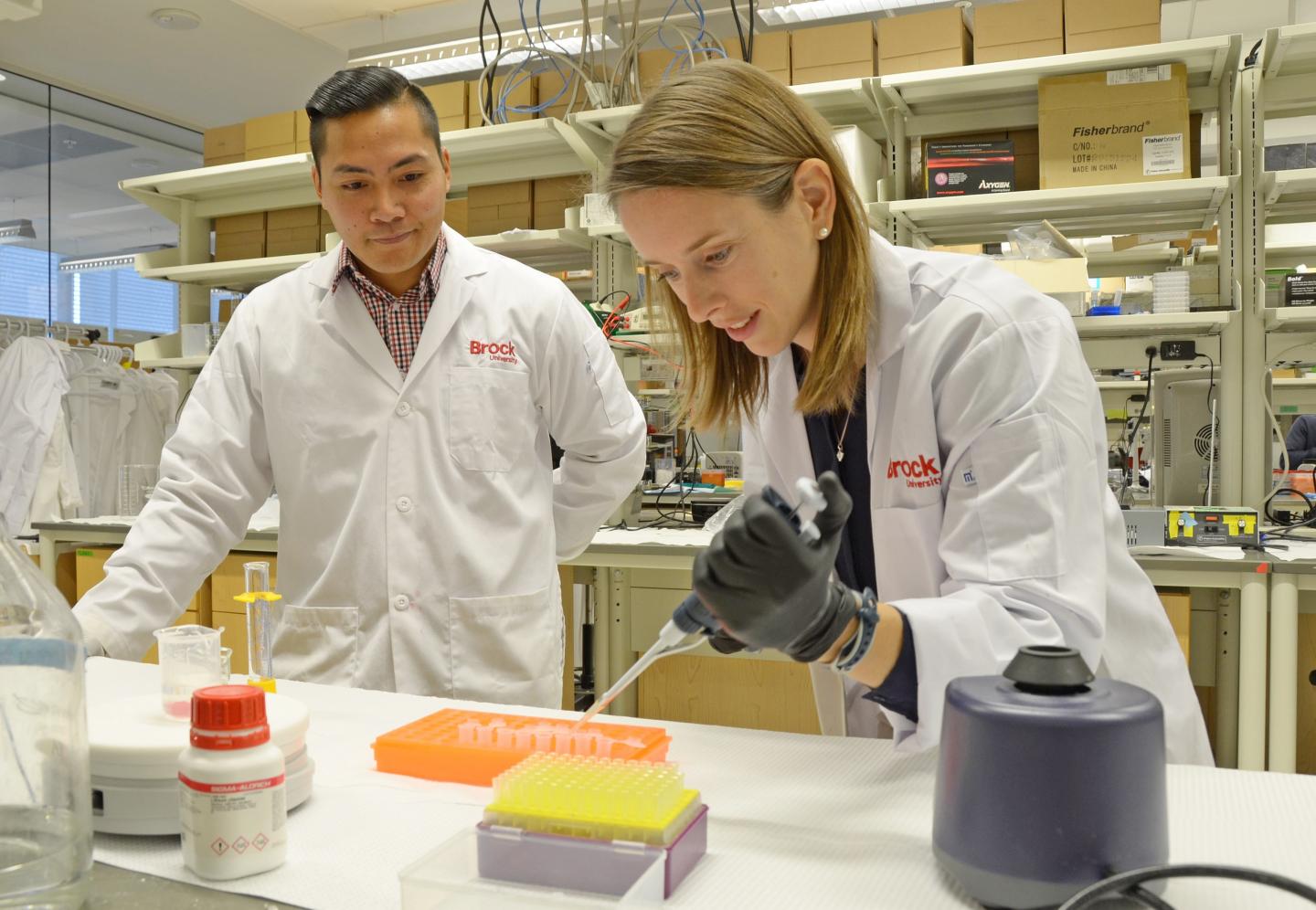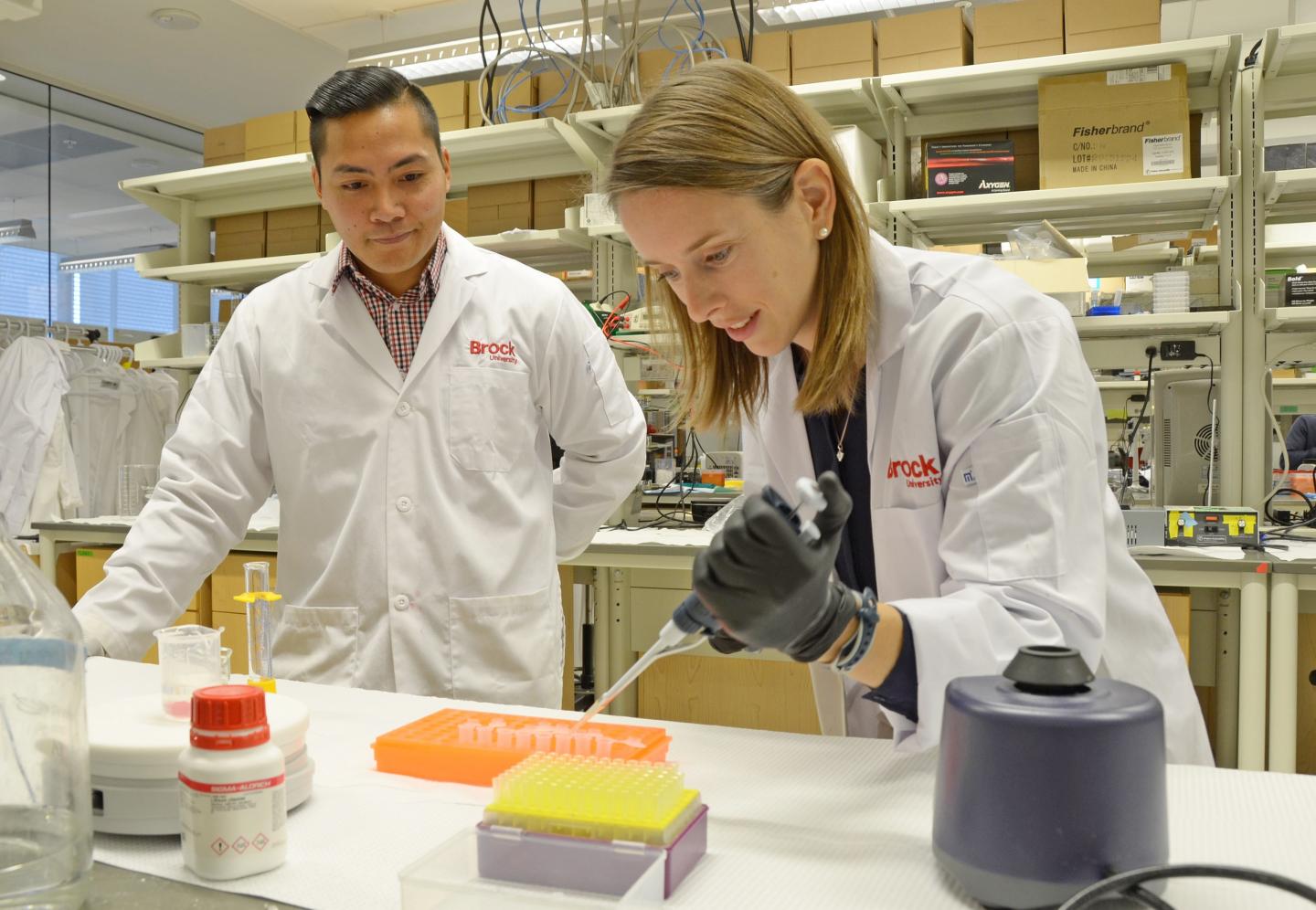
Credit: Brock University
Rates of diabetes and obesity, which are important risk factors for Alzheimer's disease, also decrease if there is a particular amount of lithium in the water, says the study, published recently in the Journal of Alzheimer's Disease.
Postdoctoral fellow Val Fajardo and Rebecca MacPherson, Assistant Professor in the Department of Health Sciences, collected statistics on various lithium levels in drinking water in 234 counties across Texas.
Lithium is a water-soluble alkali metal found in igneous rocks and mineral springs. It is commonly used to treat bipolar and other mood disorders, but at much higher doses than what occurs naturally in drinking water.
The research team, which included Associate Professor of Health Sciences Paul LeBlanc, compared lithium levels naturally found in tap water with Alzheimer's disease mortality rates, along with the incidence of obesity and diabetes, in the Texas counties.
"We found counties that had above the median level of lithium in tap water (40 micrograms per litre) experienced less increases in Alzheimer's disease mortality over time, whereas counties below that median level had even higher increases in Alzheimer's deaths over time," says Fajardo.
The frequency of obesity and Type 2 diabetes also went down when the drinking water contained similar lithium levels, the researchers found.
Fajardo says he and his team focused on Texas because data on lithium levels were "freely available."
Previous studies have demonstrated lithium's ability to protect against Alzheimer's disease, obesity and diabetes.
"However, we are one of the first groups to show that lithium's potential protective effect against Alzheimer's disease, obesity and diabetes may translate to the population setting through very low levels of lithium in tap water," says Fajardo.
The Brock research comes on the heels of an August study from the University of Copenhagen linking high lithium levels in drinking water to decreases in dementia rates.
But Fajardo warns it's too early to start advising authorities to add lithium to drinking water.
"There's so much more research we have to do before policy-makers look at the evidence and say, OK, let's start supplementing tap water with lithium just like we do in some municipalities with fluoride to prevent tooth decay," he says.
###
Media Contact
Dan Dakin
[email protected]
905-688-5550
@IOSPress_STM
http://www.iospress.com
Related Journal Article
http://dx.doi.org/10.3233/JAD-170744





